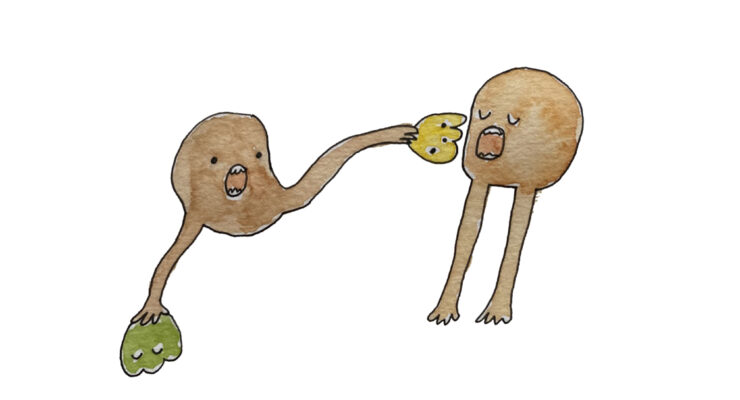Future of Food Report: Copenhagen 2035 (1/2)
On September 5th 2018, a group of food visionaries, from scientists to chefs coming from cities as diverse as New York and Shanghai to local Danish creatives, gathered at MOLD’s summit on Intimate Food Interfaces. Hosted at Space10, IKEA’s future-living lab located in the heart of Copenhagen’s meatpacking district, the summit explored the sensorial opportunities at the intersection of food and technology. The following article is an opinion piece exploring the relationships and tensions between themes that arose in the future food systems ideated during the Summit written by our Food, Empathy and Design correspondent Lotte Meeuwissen.
To cap the day, participants explored the future of food interfaces for Copenhagen in a workshop led by Estefanía Simón-Sasyk using Project Gastronomía’s Food System Game, a guided conversation game where players use prompt cards and a systems map to build narratives that explore the entire supply chain, from producing to consuming. The game yielded five different Copenhagen 2035 food scenarios, which form the basis of two provocative articles from Project Gastronomia collaborators.
Copenhagen 2035, a society in which people push the future forward with one hand, while with the other hand pull the future back to their hearts. Welcome to the love triangle of trust, nutrition and the human.
After diving into the five future food scenarios, I found myself pulled between the concepts of fast and slow. The participants predicted a food system that walks into a vortex of trust, where all nutritional choices are handed over to Datacracy. At the same time, an opposing force works towards a system that slows down in order to reconnect nutrition to humanity.
The vortex of trust in Datacracy
Intuitively, the people of Copenhagen – or the broader western culture – have a drive to optimize their lives, often encompassed with the need to go faster and faster. We cannot imagine a future without ever more advanced technologies and time-saving devices, partly because we already live in a data-driven civilization that constantly reinforces Datacracy: a world in which we have the opportunity to hand over our personal choices, views and information to algorithms, and use them as fuel to speed up any process. The idea of being able to create more time by accelerating our world excites us: it gives us a sense of power to move from one goal to the next as fast as possible. This reinforces a reward circuit as the more goals we reach, the more meaning we find in our our lives.
The same goes for food. The trend of acceleration is embodied in the way food is grown, produced, processed, consumed and enjoyed nowadays. It can be found in the design of (fast) food places, supermarkets, services, packages, kitchenware, tableware and recipes. Implementing Datacracy in our food systems means that it automates the physicality of our body in order to move faster and more efficiently. The idea of data-driven devices was a well-liked concept explored by the participants: from a mind-reading headset integrated into a wearable that is able to monitor the needs of the body in terms of vitamins and minerals, to algorithms nudging us to diversify our diets for health benefits. This idea of relying on Datacracy to live in a healthy body is dual. On the one hand it helps us understand health from a totally different perspective; it enables us to nurture our body to its needs, or to even shop for feelings by administering specific foods that are engineered to reach that feeling. On the other hand it raises a critical question: will these devices make us win or lose the sense of connection with our own body?









